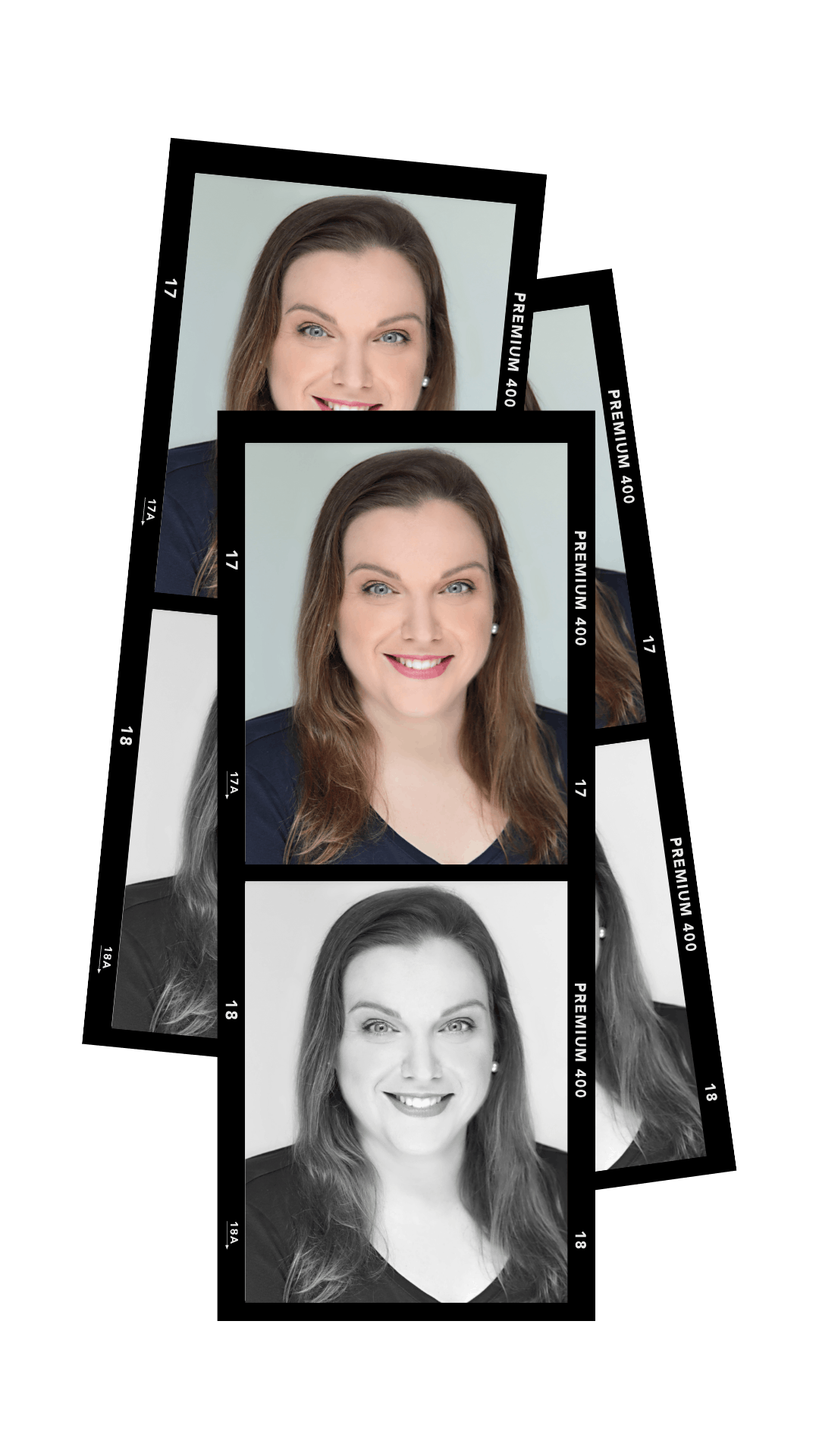Voiceover Actress Rebecca Paone Talks About Her Experiences in Entertainment
Rebecca Paone is a voiceover actress who has done work for companies like HSN and Hempvana. Cool, right? She tooks a moment to sit down with us to answer our burning questions.
 What’s your full name and occupation?
What’s your full name and occupation?
Rebecca Paone, full time actor & model, serial entrepreneur.
Tell us about you and your career.
I have been a voiceover artist for 4+ years, but left a corporate gig in May 2019 to pursue Acting and Modeling full time along with starting a healthcare tech start up. I’ve done television, film, theater, industrial, commercials, modeling, spokesperson, and testimonial work.
Tell us about your credits.
I’ve been the “voice” for over a dozen BayCare Health System commercials in the Tampa Bay region, testimonial actor with several products – Hempvana’s Cramp Calm, Tony Little’s BodyExpress, live model on HSN for before and after product application, Murder Mystery Dinner Theater with American Immersion Theater, Glamour Magazine “Dating with Psoriasis” video as primary panelist, and most recently regional election paid advertising. When COVID struck I was seasonally working for a traveling children’s theater in Tampa Bay. Most other work has been background work in Philadelphia and Atlanta on television and film sets. (See acting resume attached)
Did you have to make difficult choices and what are the lessons learned?
I had to make the decision to travel to a new market, Atlanta, and spend money for extended stay to pick up work. I also traveled to Philadelphia as well for several weeks.
Tampa/Orlando and South Florida are slow on entertainment recovery. I got booked on 2 sets in Atlanta in the same week, one for a day; the other asked me to be available for 9 days on a reoccurring featured background and ended up using me for 2 days. I ended up not even being able to break even and took a loss on the trip since I couldn’t get booked on other sets due to availability commitment. My lesson learned is sometimes there will be losses due to opportunities; make sure the opportunities are worth the risk.
I don’t have unemployment assistance anymore because I ended up taking a 1 day acting gig that paid on a W-2 and the state of Florida is reviewing my eligibility for continued benefits. I haven’t received income from UI since July 25th. And since that gig in late July, I’ve made less than $500 on other acting work or odd jobs. I’m spending down my savings waiting on a potential UI check. In the end, I could end up with nothing. The state has yet to respond to my inquiries on my review. If I spend down my savings to a certain level trying to keep my acting career and startup company afloat, I’ll have to find full-time corporate employment again. That path will ruin my chances of being hired for most acting opportunities. I have other actor friends that had to make this decision during COVID. We see the arts and entertainment industry failing to make opportunities for union and non-union actors.
What advice do you have for people looking to break into the industry?
You may think you have natural talent, but go to acting classes. You’ll learn techniques, breaking down scripts, building your character, and understand the protocol and terms used on set. Yes, even if you are doing background work, learn how to properly act. I’ve seen directors remove over-acting background from set because they were just not professional or taking direction. Background is not a lead character and should not distract attention away from the lead.
You should do as much paid and unpaid featured, supporting, or lead role work as you can to build your resume before submitting to an agent. A demo reel with high quality footage is necessary to make you look as good as you can. Most non-paid productions will compensate you with a reel of your work.
Once you get some experience, you can look for an agent. A good agent will submit you for work, give you feedback on creating a demo reel, other acting classes to take to fill in weak areas of your craft. They will tell you that working your skills off screen makes the on screen performance. You are like a professional athlete the real work is done off-screen. So really work your talent with coach, scene partners, and may be creating your own content.
Facebook groups are out there for every city, region, and state for acting and modeling. Productions are posted for audition opportunities and will disclose how to apply. Follow directions. I cannot stress that enough. Casting can be slammed with auditions and incomplete or those who don’t follow instructions can be discarded.
If you do acting work, especially background work, expect to wait, A LOT. Bring your own “quiet entertainment” while on-set. Sometimes cell phones cannot be readily accessible, charged or used. A book or a deck of cards is your best friend.
What are your favorite shows/film?
Personally, I love documentaries. But my favorite films are strong, intellectual dramatic characters, social justice and people who made history; but then I love comedies and musicals in the same breath. Television preference are competition shows like the Great British Bake Off and Nailed It, or similar genres to film characters. Queen’s Gambit was my latest binge, and I’m looking forward to seeing the next season of The Crown on Netflix.
What’s is been like working during COVID19?
Non-union sets are not always COVID compliant right now. SAG-AFRA sets are more regulated but not all do the same level of protection despite their agreements with the union. Really consider your risks before auditioning. There was a large promoted open casting call for a non-union film and production studio here in Tampa that was not going to enforce masks on set or for people waiting in-line during the audition process. I found it highly irresponsible and not professional example about the industry, especially for new people coming into the industry. You need to be your own safety advocate so set yourself up for success while on set if you are not in the comforts of a sound stage, or location that has running water and indoor facilities. Each SAG set was different on testing protocols, or enforcement of social distancing between takes. On a television show in Atlanta, all crew, talent, and staff needed to be nasal swab tested twice with 2 negative results before being on set. You were paid for testing time and they covered the testing costs. Every 3 days, you had to be tested. There were safety coordinators who met everyone on set to survey and perform temperature checks daily. You were provided PPE and a transport bag for your own personal items when PPE had to be removed when cameras were up. The other SAG set in Atlanta for a made for TV movie was requesting a negative test no more than 1 week prior to on set that we had to secure on our own if we did have one from another set. They did a temperature check, test result look over, asked questions, and had hand sanitizer scattered in areas. No additional PPE was provided. I was on set for hours at a time without a “squirt” while touching props that were not entirely clean. In between takes they were strict about background masking up, but lead talent was exempt.
Non-union has been just as varied. The majority of non-union work I’ve done where I’ve been lead, has been self-taping at home. Glamour magazine’s shoot with Condé Nast was a whole production team working remotely except for a camera production person sent to my home to set up a “production rig” on a cart – lights, camera, recording, you name it. That cart I brought into my home and made a set in a living room. They shipped me background, seating, and wardrobe. I was on video chat with the entire team across the globe on camera focus, mark, frame, and getting directed through video on a teleprompter display in camera. Getting auditions or being booked has been more difficult. I’ve submitted for a lot of work, but the level of submissions has gone up so it’s higher competition. I was making a livable wage before COVID, but now, I’m lucky if I book every month for non-union. Those gigs don’t pay much even more when you have an agent to split it with. Many casting directors are mandating “local hires” only due to potential quarantine issues or actors, like myself, coming in from high infection states. I had auditioned for a popular cable channel game show during COVID but the main challenge and question from casting was being able to come up to the New York/New Jersey area and quarantine for 2 weeks prior to reporting to set. Since my parents live in the Philadelphia area, I could quarantine there and the distance was acceptable. I also submitted for work while in Philadelphia for the first 3 weeks of September while visiting family and looking for work, but wasn’t chosen despite notes that I was “local” and able to work locally in the NY/NJ/PA areas. I was hoping to get onto the Happy Madison film that was shooting, but wasn’t selected as an extra or support role. That production mandated living in a 3 - 6 week bubble during production to ensure healthy individuals for continuity.
My dinner theater company created virtual shows, but I had to re-audition for being an actor on those productions. The compensation base was less, and I personally didn’t know people working often enough in my troop who were cast. When the production office started booking live shows again, they asked if I would work without a mask, only a face shield, I declined because I want to wear a mask always. Then they permitted masks with windows, like ones designed for lip-readers, but I wasn’t going to go buy more masks that were more expensive. Eventually the approved regular masks as long as the mask fits with the costume for our character. Costumes and masks are not provided by the production company (some pieces will normally be, but full costumes are usually not available), other PPE like the face shield and sanitizing wipes and materials are. If hired, I would have to buy costumes and corresponding appropriate masks of which my costume wardrobe is limited especially for some of the roles that can be done for a 1 to 2 person show. A live show base pay is $75, and usually there isn’t a tip. If you get tipped that is a bonus but not mandatory for clients. Travel up to a certain distance isn’t compensated, long distance shows will pay a certain rate for mileage and if far enough they’ll pay for hotel, no meals. Sometimes it doesn’t pay to do shows in my opinion because of expense incurred. Most actors in my troupe do these shows to make a few extra bucks and for the love of acting. May be I’m too business minded, but acting is a business and if you treat yourself as a talent and business manager, you’ll understand why your value and safety has to be preserved.
How can we follow your journey?
Facebook
Instagram
Portfolio
Demo Reel
Demo Reel
Last project


